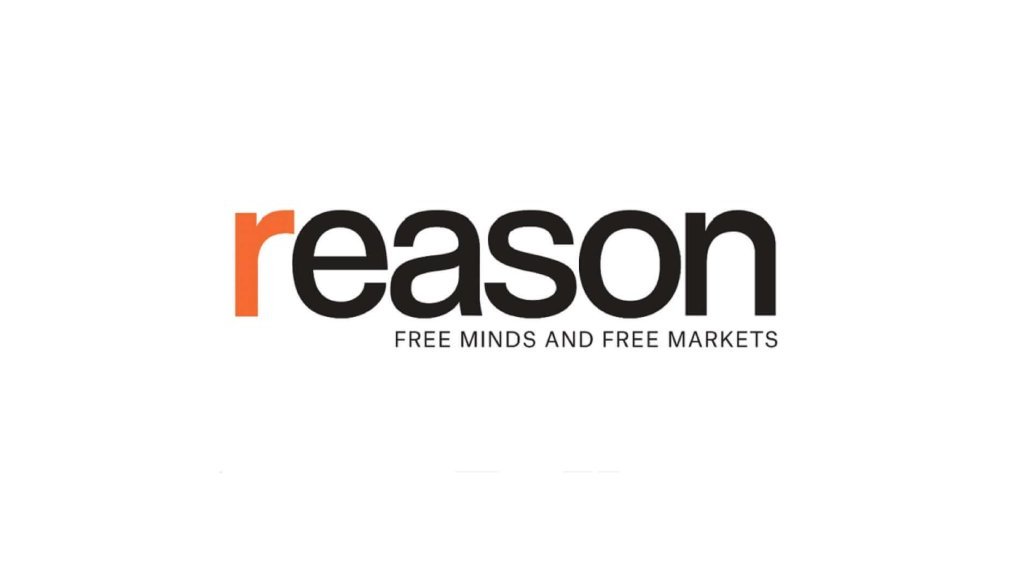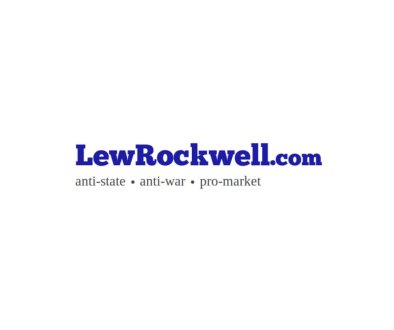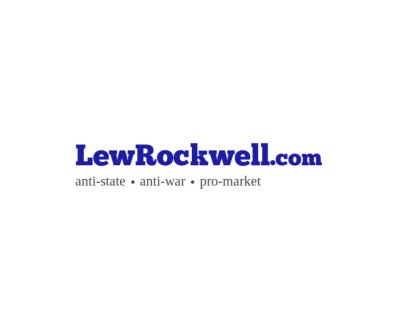The Libertarian Case for Postmodernism
What if one of the sharpest critics of centralized power, bureaucratic surveillance, and top-down social control wasn’t a libertarian economist but a French postmodernist? And what if one of the economists most vilified by the left wasn’t a cold-hearted market fundamentalist but a thinker obsessed with the limits of knowledge and the dangers of planning?
Today’s guest is King’s College London political economist Mark Pennington, author of the new book Foucault and Liberal Political Economy: Power, Knowledge and Freedom. A self-declared postmodernist libertarian, Pennington explores the common ground between Michel Foucault and Friedrich Hayek. He talks with Nick Gillespie about how Foucault’s critiques of expert rule, scientism, and the construction of subjectivity can bolster the classical liberal fight for freedom—and how Hayek’s warnings about the pretense of knowledge might offer the left a way to resist domination without defaulting to centralized authority.
If you’re a libertarian who thinks Foucault is just woke nonsense—or a progressive who sees Hayek as a neoliberal villain—this conversation will blow your mind in the best way possible.
0:00 – Intro
1:20 – What is a postmodern Austrian political economist?
5:07 – Scientism and Hayek
10:45 – The limits of postmodernism
17:46 – The intersection of Foucault and Hayek
30:12 – Systems of control and surveillance
37:39 – Foucault’s warnings on government authority
49:57 – Creating a postmodern liberal political economy
1:01:29 – Foucault and the Iranian Revolution
1:08:21 – Have we learned anything from Foucault and Hayek?
Upcoming Events:
The Soho Forum Debate: Glenn Greenwald vs. Anna Gorisch, August 12
________________________________________________________________
Transcript
This is an AI-generated, AI-edited transcript. Check all quotes against the audio for accuracy.
Nick Gillespie: Mark Pennington, thank you for talking to Reason.
Mark Pennington: Thank you. It’s great to be here Nick.
So let’s start, you know, before we get into a discussion of your book Foucault and Liberal Political Economy—the new book, which is absolutely fascinating, and I think anybody interested in libertarian politics or in Foucault—and I think there’s you, me, and about five other people that are in that intersection, but everybody should be.
But I want to read your Twitter bio and have you explain it a little bit to me. You are a “Professor of Political Economy at King’s College London.” OK, I understand. Everybody gets that. And then you say: “Post-modern Austrian political economist, Foucault Fan, Hayek Fan, classical liberal individualist.”
And, you know, as somebody who’s—I’ve been working at Reason since 1993. I went to grad school for literary and cultural studies from 1988 to 1993. And when I see “Post-modern Austrian political economist, Foucault Fan, Hayek Fan, classical liberal individualist,” I just see all of the people that I went to school with—my professors and students and colleagues, classmates—their heads kind of exploding. This is an interesting mix.
Let’s start first with the idea of: What does it mean to be a postmodern Austrian political economist?
Well, I think it refers to the idea that people who call themselves postmodernists are skeptical of universal truth claims. They’re very skeptical about the access claims, as they would say, of scientific reason.
And as Lyotard, Jean Lyotard, says, “To be postmodern is to be incredulous toward metanarratives.”
Absolutely, absolutely. And I see an important thread in— not in all of Austrian economics—but especially the thread that’s been influenced by Hayek, but you can also see it in people like Ludwig Lachmann, George Shackle, and Don Lavoie, as being very compatible with this kind of a view.
There’s a kind of radical skepticism of scientific claims. That doesn’t mean that you throw out all claims to scientific reason, but it means you have a very particular understanding of what scientific rationality might imply.
And so, I mean, in a way—or the way that I think about this, because I see myself in that postmodern Austrian school of economics—it’s really kind of emphasizing the limits of our knowledge rather than the extent, especially as that applies to public policy and the way that people are overtly or covertly governed.
I think that’s right. And I think what underlies that, but which often doesn’t come out—even as much as I would like it to—in some of the writers that I just mentioned, is that human beings are fundamentally, if you like—if we can use the word fundamental in this context—they’re creative agents.
And it’s that creativity that generates instabilities in the world. And it’s the fact that there are these instabilities that means that our potential to discern lawlike relationships in human societies is very limited. So I see that as ultimately being about human creativity.
And this is an area where I think there should be—although there isn’t—there should be much more overlap between Austrian economic analysis and a lot of the kind of work that takes place in the arts and humanities.
So the critique of scientism.
Yeah. And this term, “scientism”—when I think of how I started to develop an interest in libertarian thought, and I’m a mere journalist and an English major, so I don’t think about it as rigorously as political economists and philosophers—but I had stumbled across Hayek’s 1952 book The Counter-Revolution of Science: Studies on the Abuse of Reason, where he talks a lot about scientism.
Which he sees as the kind of mechanical application of laws and axioms in one field to others. But that whole book is a critique of Enlightenment modernity that thinks, “Well, we’ve kind of figured out biology and chemistry and physics, and now we can just port all of that knowledge”—where the rules are clear and we can understand action and reaction—”and just port that over to human society.”
And he goes through a bunch of particularly French and other continental thinkers who literally say things like, “Now that we know how physics works, we can direct human social advancement and speed it up or slow it down.”
And for him, that’s the beginning—it’s the French Revolution and rationalizing society—that leads to the gulag. You know, both of the kind of Nazi version, but also of the Soviet—and this mania for planning.
Where does that kind of arrogance—or where does that—maybe that’s too strong a term, because most of the people involved in this are not bad people. Francis Bacon didn’t want to control the world when he was articulating an Enlightenment view that we’re going to map every part of the known universe and understand it, and then we can control it, right? Knowledge is power and we’ll get to that in terms of Foucault.
Where does that hubris come from?
That’s a difficult question. I think there’d be different elements to my answer. One part would be, actually there are bad actors who can be empowered by scientism. So people whose actual real motive is to gain power over other people will use scientific reasoning as a kind of ruse for doing that.
But I think there is also a more unintended consequence from certain forms of scientific rationality. So the way I think about it is, if you have a narrative which sets up some kind of notion of expertise, you create a set of actors who have an interest in sustaining those claims to expertise. So people’s income, their status, can be dependent on that expertise.
And that can mean that you have—unintentionally, perhaps, it’s not something that was intended by the people who created these narratives—but you can create a kind of logic which counts against pluralism of thought. Because if you’re an expert, the last thing you want is there to be too many other sources of expertise.
Because the more sources of expertise there are, the less likely it is that people will take note or feel that they should be governed by any one expert or set of experts. So the tendency is in many scientific fields—this is true certainly in social science, but also even in natural science—is once a certain view of what the expertise says gets established, there tend to be disciplinary dynamics that start moving out other sorts of opinions.
So we have that kind of gradual crushing of pluralism, which nobody’s actually intended, but has sort of arisen from internal logics within these kinds of scientific narratives and the positions they create.
Gee, if only we had a recent global phenomenon that helps illustrate what that’s like. But I mean, in the public health field, and the way that COVID was discussed, right?
Where dissent was not, certainly not, patriotic or scientific. It was a sign of derangement or a moral failing. Right? Because this is part of the problem too, is that the people who have the expertise are like, “I’m not doing this because I believe in this theory particularly. I’m a scientist. These are the facts. And if you disagree with me, you’re not just in error, but you are actually putting other people at risk.”
And what I found actually fascinating about the COVID pandemic was it wasn’t only members of the public or lay opinion who were subject to this kind of condemnation. It was scientists themselves who fell outside of the mainstream view.
People who’d been considered to be mainstream scientists suddenly found themselves demonized because they were expressing a view that, actually, just months before this thing happened, was considered to be the conventional wisdom about how you respond to a pandemic.
Well, and I guess you guys at King’s College have a lot to answer for, right?
You know, how do you feel—this is that aside—how do you feel as a classical liberal individualist working at a place called King’s College? I mean, I guess it’s better than Imperial College, but come on, you know.
Yeah, these are matters of degree. Matters of degree.
But to go back to your earlier statement about postmodernism—you’re not saying that all knowledge is fake, or you know, it’s often instrumental. And one of the reasons why we got to an age of expertise—first in the sciences maybe, and then in industrial sciences—that clearly benefited people.
I mean, being able to rationalize the production and distribution of goods on the planet, but especially starting in Europe and North America, we went from being poor to being a surplus economy, where people lived longer, got richer. I mean, medicine—scientific medicine—worked. Scientific food production worked. Certain forms of social organization that were based on kind of Enlightenment thinking really delivered the goods, literally and figuratively.
So what are the limits then? Because when you say—you invoke the term “narrative” to talk about knowledge and information or expertise—it’s both kind of true, right? Because oftentimes it will do what it says it’s going to do. “I have studied how these crops will respond to this type of fertilizer and this type of watering and this kind of cultivation, and boom, I’ve solved world hunger.” I mean, like, that happened.
How do you deal with, from a postmodern point of view, the idea that sometimes this expertise—or oftentimes this expertise—is actually doing something that is observably beneficial or in line with the thinking process?
Well, I think the important thing here to recognize—and this is true not only of the postmodernists but also of people like Hayek, whom you’ve already mentioned—is that they are not opposed to Enlightenment thinking as such. What they’re concerned about is a kind of overreach of that thinking.
And by overreach, they’re concerned about notions that people can access a kind of pure notion of truth that isn’t always, in some sense, entangled with attempts by people to gain influence over others, to exercise power. So you recognize that power is always involved but still believe that there are certain scientific theories that we’ve got reasons to actually take seriously and to believe.
But what you’re going to emphasize is that because—and this is especially true, I think, in the human and social sciences, as opposed to natural science, though it’s even true in some areas of natural science—because the knowledge concerned is often really quite opaque, it’s often hard to detach the truth claims from the attempt by actors to gain influence over others. So separating out those elements is often very hard in what are often complex phenomena.
I think it’s easier in the natural sciences, because there is a case to be made that for certain kinds of natural phenomena, they are the kind of phenomena that can be looked at almost through a laboratory-like process, where you’ve got a sort of stimulus-response model operating on what are elements that have no agency as such of their own. But it’s very different when you’re looking at human phenomena.
And this is something Hayek obviously stresses throughout. I guess it maybe is distilled in the most popular form in something like The Road to Serfdom, but his entire work—and again, you know, I think it’s partly just an accident of me reading The Counter-Revolution of Science first—but like, that to me is the key to everything about him. You’ve got to take it easy when you start saying, “Human society follows these rules, so we need to get rid of the people who aren’t following the rules.”
Right? It’s very clear. This is the place where Hayek, in a way that maybe more of my audience is comfortable with, intersects with Karl Popper too. The idea that we know with each increase in knowledge, we gain some knowledge, but we also understand that we understood—on some level we understand less and less of the world. So you’ve got to be careful when you start talking about social engineering, which itself is a fantastic concept, right? Coming out of the 19th century, really. Like, we know how to engineer locomotives, so let’s engineer whole towns and whole civilizations.
Well, the Hayek–Popper conversation, I think, is an interesting one in terms of these debates. Popper considers himself to be a critical rationalist. You can understand that critical rationalism to be a form of, kind of, radical skepticism, which in many ways sounds quite similar to a lot of postmodern themes. So postmodernists, I would consider, are radical skeptics. They want everything to be on the table. They want a sort of permanent spirit of criticism.
I think there’s a debate between Hayek and Popper about what that critical rationalism means in different settings. Popper is very much of the view that the critical rationalist spirit is reflected in a kind of hypothesis-testing mode, where you are looking for laws but you’re never quite sure whether you have access to them. You’re looking about specifying scientific tests for particular sorts of theories.
Now Hayek is sympathetic to that, but he comes back by saying, “There are certain kinds of phenomena that cannot be subject to this kind of testing, even in the natural world.” And the example he gives is evolution by natural selection.
So evolution by natural selection is a kind of natural science theory, but it isn’t one that can be tested in a kind of positivist, hypothesis-testing way. What it is is a narrative that explains certain things about the world. And the reason we might accept that narrative is that, given other things that we believe about the world, we might find it more convincing than, say, an intelligent design theory. But it is not one that we can test—
Which itself is a narrative as well.
Exactly, exactly. But we can’t test it in a kind of laboratory-type sense in the way that maybe other aspects of natural science that we could subject to those kinds of techniques.
I will—because I feel a need to do this almost every time I bring up or hear people talk about Karl Popper, whose most famous work is The Open Society and Its Enemies—and there’s a joke that his students, who he was quite a harsh taskmaster with, always referred to that as, “The Open Society by One of Its Enemies.”
But now this brings us to Foucault, because Foucault, like Hayek, he acknowledges at various points the way in which scientific thinking or Enlightenment thinking and rationalism and various kinds of developments have produced material wealth and even certain forms of political freedom or liberation.
Although, exactly, “Can you be liberated in a Foucauldian world” is a different type of question. But it’s very much about narrative, and it’s about how we talk about things.
So how do you see Foucault and Hayek kind of intersecting in the way that you were just talking about?
Well, I think it relates to the idea that there is no God’s-eye view of the world. Hayek’s critique of scientism is very much based on the idea that a lot of the relevant knowledge is dispersed. It’s subjective. There’s no entity that can actually perceive all of the knowledge that’s relevant to what he calls complex phenomena.
Now for Foucault, there is also a kind of perspectival aspect to knowledge. But he—and this is where there’s a difference between the two of them—he wraps that up much more in the Nietzschean notion that each individual action in the world is kind of pursuing a sort of will to power, trying to put their perspective into the world. And then, through the interaction of multiple wills to power, you get kind of emergent systems of power or forces emerging, none of which actually represent the truth, but that in various ways can operate to constrain people.
Now, I think those two views are compatible, even though they’re working from somewhat different premises. But they’re united in the idea that there is no godlike spectacle.
Right. So there’s really only emergent phenomena. Or in Hayek, there’s an emergent phenomenon, and we kind of stumble through the world figuring things out. And then in Foucault, it’s that appeal to the God’s-eye view is a power move to kind of shut down dissent or to
Article from Reason.com

The Reason Magazine website is a go-to destination for libertarians seeking cogent analysis, investigative reporting, and thought-provoking commentary. Championing the principles of individual freedom, limited government, and free markets, the site offers a diverse range of articles, videos, and podcasts that challenge conventional wisdom and advocate for libertarian solutions. Whether you’re interested in politics, culture, or technology, Reason provides a unique lens that prioritizes liberty and rational discourse. It’s an essential resource for those who value critical thinking and nuanced debate in the pursuit of a freer society.




